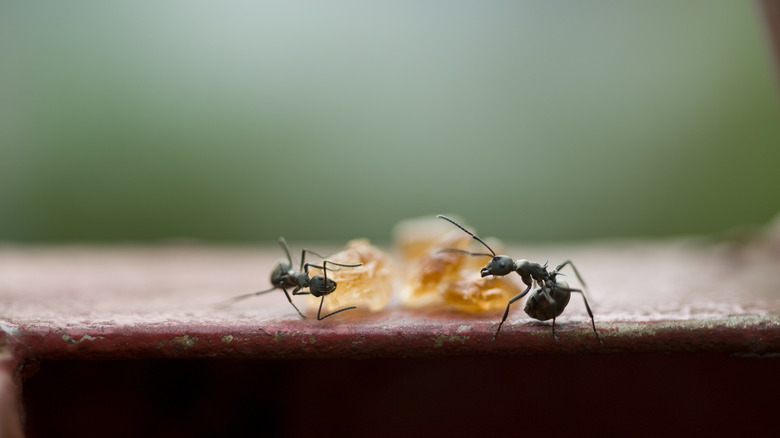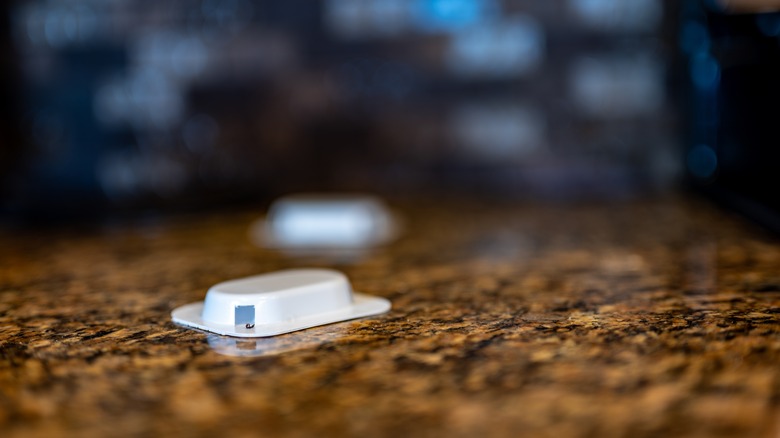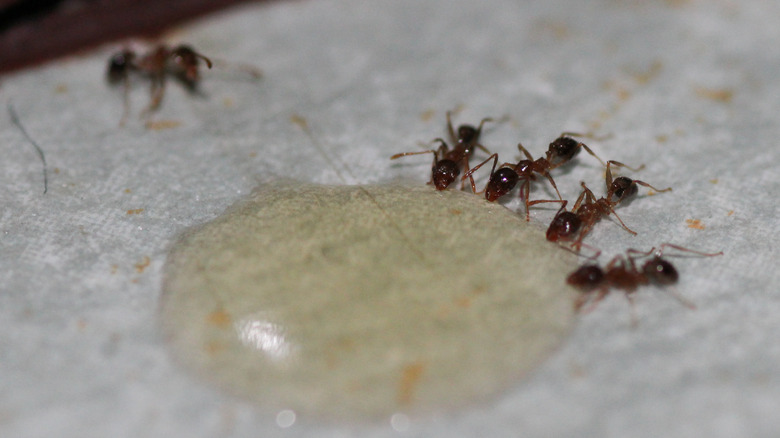The Most Effective Way To Get Rid Of Sugar Ants Once And For All
Battling a sugar ant infestation requires a strategic approach, and baits emerge as a game-changer. They're not just a temporary fix but a strategic strike at the heart of the problem — the ant colony itself. The sugar ants you often spot marching around are known as foragers. Most of their companions, including the elusive queen, remain hidden deep within their nest. The key to controlling these pests lies in understanding their behavior and exploiting it. Forager ants are on a constant quest for food. They are particularly attracted to sweet and sticky substances, which is why kitchens and dining areas are often the most affected.
This is where baits play a crucial role in getting rid of these ants. They can exploit the ants' natural foraging behavior thanks to their design, which strikes a fine balance between attraction and effectiveness. They typically contain a sweet substance that lures ants in. This sweetness is combined with a slow-acting poison, which gives the foragers enough time to share the bait with the colony before the poison takes effect. However, since it can take as little as ten days for sugar ant eggs to hatch, if you have a serious sugar ant infestation, it's important to act swiftly with the baits. According to Cooper Pest Control, left unchecked, these ants can contaminate food and surfaces, creating unsanitary conditions in your home. Moreover, sugar ants can establish their nests in hard-to-reach places like wall voids or under floors, making direct treatment challenging.
Why baits are effective and how to use them
Unlike other methods that only kill the ants you see, baits are designed to reach deep into the heart of the colony, targeting the queen and other members, thereby dismantling the colony from within (by effectively disrupting the breeding cycle). Another significant advantage of baits is their safety profile, especially compared to more aggressive forms of pest control. Baits are often enclosed in tamper-resistant containers, making them a safer choice in environments with children and pets. This design minimizes the chances of non-target exposure, making bait a responsible choice for household pest control.
When implementing baits, placement is key. Identify high-traffic areas where ants are commonly seen. These areas usually include kitchen counters, sinks, and walls. Placing the bait in these strategic locations maximizes the chances of forager ants finding and taking the bait back to their nest. Despite their benefits, they are not an overnight solution and require some patience. It might take a few days to a week for the full effect to be observed. During this period, it's important to resist squashing any ants, warns Cooper Pest Control Services. It's also crucial to maintain cleanliness in your home, especially in areas prone to ant activity. This helps ensure that the ants choose the bait over other food sources.
Recommended baits and professional help
Selecting the right bait is crucial to your strategy against sugar ants. With a range of products available, it's important to choose those that are most effective for your specific situation. Some baits stand out for their proven efficacy and popularity among users. For instance, Terro Liquid Ant Baits are widely recognized for their ability to attract a broad spectrum of ant species. They are user-friendly and act as a powerful lure for ants due to their liquid formulation. Another highly recommended option is the Advion Ant Gel. This bait is also designed to kill various ant species. Its gel form allows for precise application in areas where ant activity is most intense, such as along trails or near entry points. The gel's consistency and potent formula make it odorless, translucent, and long-lasting.
While baits are effective, they might not be able to kill the entire colony, especially if the infestation is large or if the ants have established multiple nests. If you still face a persistent ant problem, call in a pest control expert. Professionals can identify the specific species of ant you're dealing with and provide a tailored solution. Moreover, pest control professionals have access to more potent treatments and the expertise to apply them safely and effectively. They can also provide advice on preventing future infestations, helping you maintain an ant-free environment in the long run.


